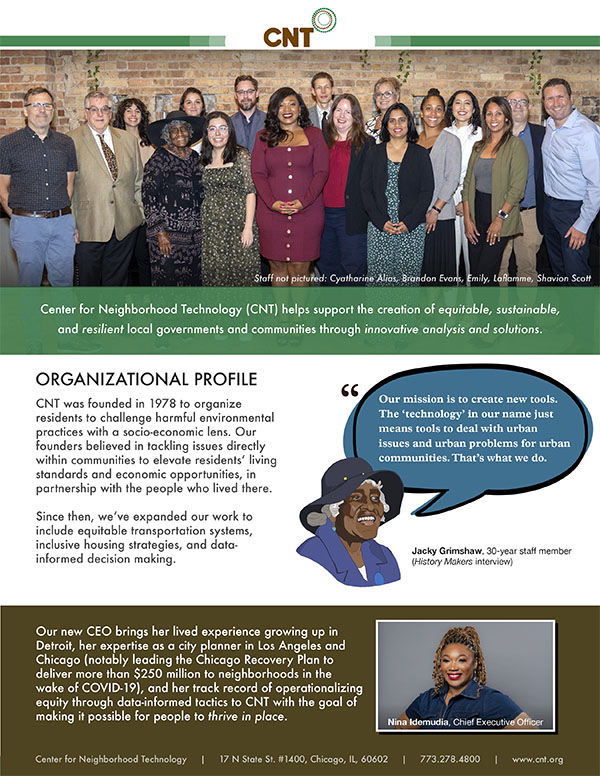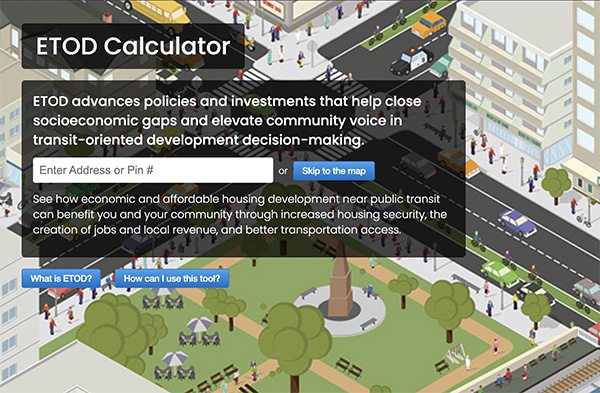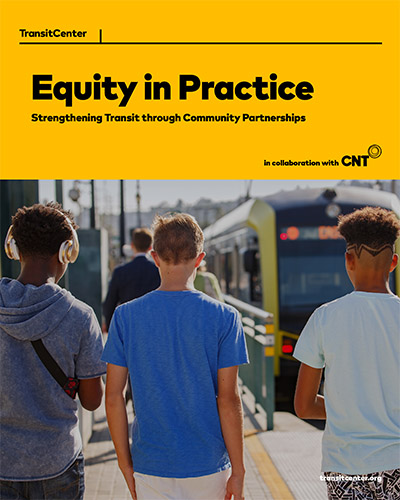The Center for Neighborhood Technology (CNT) applauds the U.S. Supreme Court for upholding disparate impact liability in the case of Texas Department of Housing and Community Affairs v. Inclusive Communities Project. The Court ruled that the Fair Housing Act prohibits policies that adversely affect minority groups and reinforce segregation, even when such outcomes are an unintended consequence.
At the center of the case was whether Low-Income Housing Tax Credits should be allocated to the inner city or to less diverse suburbs. It’s not an “either/or” proposition. Low-Income Housing Tax Credits should be used to proactively build diverse, walkable communities with good access to jobs, transit, and schools.
As CNT and Open Communities noted in Quality of Life, (e)Quality of Place, when communities grow compactly, close to jobs and along transit routes, people have greater choice among affordable communities, a variety of career ladders within commuting distance, and multiple transportation options. State housing finance authorities must utilize all of the tools at their disposal, including Low Income Housing Tax Credits (LIHTC), to build these connected communities. Otherwise, we run the risk of the dislocation of low-income households from economic opportunity through sprawl. And that access to opportunity varies from one suburb to the next.
According to CNT’s AllTransit™ tool, a household in downtown Oak Park, a suburb just outside of Chicago with a variety of transit options, can access 720,762 jobs within a 30-minute transit ride. A household in Lake Barrington, a far northwest suburb of Chicago identified as a fair housing opportunity area by the Illinois Housing Development Authority (IHDA), can’t access a single job within a 30 minute ride.
For a low-income household in Lake Barrington, the choice may be between a car and a job. And that choice bears an additional price on that household’s cost of living. According to our H+T Index, for a moderate-income household earning $48,925 per year, transportation costs in downtown Oak Park average $7,874, or 16 percent of income. In Lake Barrington, they average $13,041 per year, or 27 percent of income. With lower average mobility costs, a household in Oak Park has several thousand more per year to spend on health care, childcare, education, and other needs.
It is critically important that all housing and transportation investments turn the tide on segregation by creating more diverse and connected communities like Oak Park. The United States needs transit that better connects diverse communities to jobs, and strategies for affordable housing that build equitable transit-oriented development (TOD) in cities and in the suburbs. When that happens, housing and transportation policy can ensure equal access to the transit system and the opportunity, mobility, and reduced cost of living that equitable TOD provides.





 Strengthening Transit Through Community Partnerships
Strengthening Transit Through Community Partnerships



 RSS Feed
RSS Feed